
Santa Catarina: The Hidden Gem of São Tomé and Príncipe
Discover Santa Catarina in São Tomé and Príncipe: A lush paradise with rich culture, pristine beaches, and hidden waterfalls perfect for adventure and relaxation.
Santa Catarina is a small, charming town located on the island of São Tomé in São Tomé and Príncipe. This destination is perfect for those who want to experience the untouched beauty of Africa. The town is surrounded by lush, green forests and pristine beaches that offer a tranquil escape from the hustle and bustle of daily life. The local culture in Santa Catarina is rich and vibrant. You can immerse yourself in the local way of life by visiting the markets, where you will find fresh produce, handmade crafts, and friendly locals eager to share their stories. The town is also home to several historical sites, including old colonial buildings and churches that tell the tale of its past. For nature lovers, Santa Catarina offers numerous hiking trails that lead to breathtaking viewpoints and hidden waterfalls. The nearby Obo National Park is a must-visit, offering a chance to see unique wildlife and rare bird species. The beaches here are perfect for snorkeling and diving, allowing you to explore the underwater world filled with colorful fish and coral reefs. Whether you're looking for adventure or relaxation, Santa Catarina has something to offer.
Local tips in Santa Catarina
- Visit the local markets early in the morning for the freshest produce and best bargains.
- Wear comfortable hiking shoes for exploring the trails in Obo National Park.
- Bring snorkeling gear to fully enjoy the underwater beauty of the beaches.
- Respect local customs and dress modestly when visiting historical sites and churches.
- Hire a local guide to enhance your experience and learn more about the area's history and wildlife.
Santa Catarina: The Hidden Gem of São Tomé and Príncipe
Santa Catarina is a small, charming town located on the island of São Tomé in São Tomé and Príncipe. This destination is perfect for those who want to experience the untouched beauty of Africa. The town is surrounded by lush, green forests and pristine beaches that offer a tranquil escape from the hustle and bustle of daily life. The local culture in Santa Catarina is rich and vibrant. You can immerse yourself in the local way of life by visiting the markets, where you will find fresh produce, handmade crafts, and friendly locals eager to share their stories. The town is also home to several historical sites, including old colonial buildings and churches that tell the tale of its past. For nature lovers, Santa Catarina offers numerous hiking trails that lead to breathtaking viewpoints and hidden waterfalls. The nearby Obo National Park is a must-visit, offering a chance to see unique wildlife and rare bird species. The beaches here are perfect for snorkeling and diving, allowing you to explore the underwater world filled with colorful fish and coral reefs. Whether you're looking for adventure or relaxation, Santa Catarina has something to offer.
When is the best time to go to Santa Catarina?
Iconic landmarks you can’t miss
Papa-Figo
Discover authentic São Toméan cuisine at Papa-Figo, where local flavors and vibrant dining come together in a welcoming atmosphere.
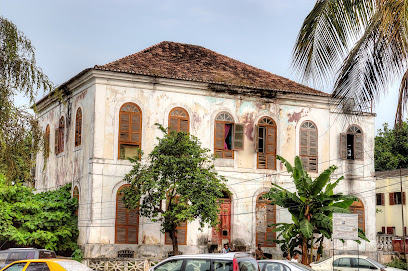
Omali São Tomé
Discover the beauty of Omali São Tomé, a luxurious hotel on Praia do Lagarto, where relaxation meets adventure in a tropical paradise.
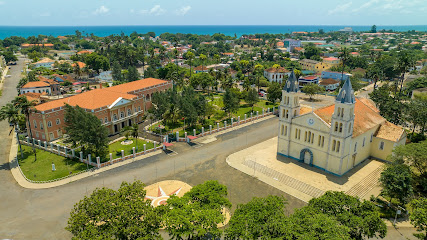
Saint Nicholas Waterfall
Experience the breathtaking beauty of Saint Nicholas Waterfall, a natural wonder in Monte Café, where tranquility meets stunning scenery.
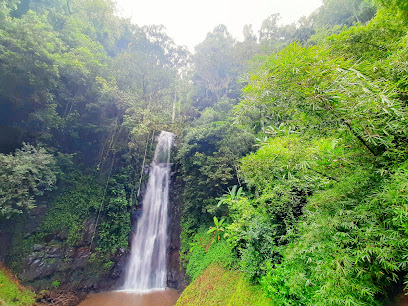
Equator Landmark
Stand at the center of the Earth at the Equator Landmark in Porto Alegre, a unique historical site offering stunning views and cultural insights.
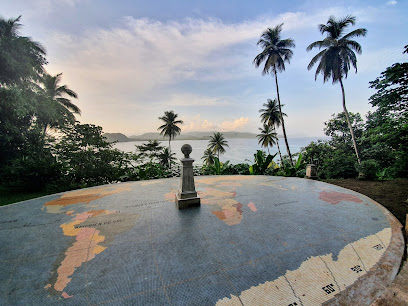
Pico Mocambo
Discover Pico Mocambo, São Tomé's lively bar offering a taste of local culture, delicious drinks, and an unforgettable atmosphere.
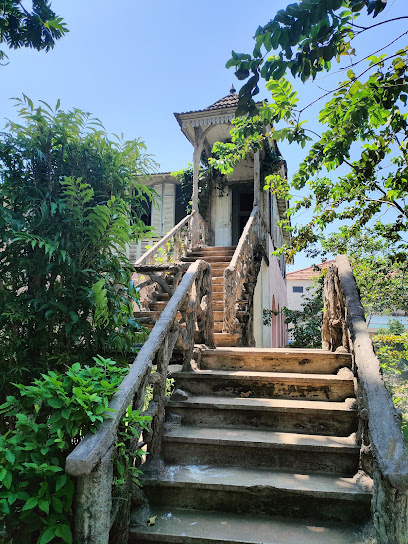
Sao Tome Island
Explore São Tomé Island's breathtaking landscapes, rich culture, and vibrant biodiversity - a tropical paradise in the heart of the Gulf of Guinea.
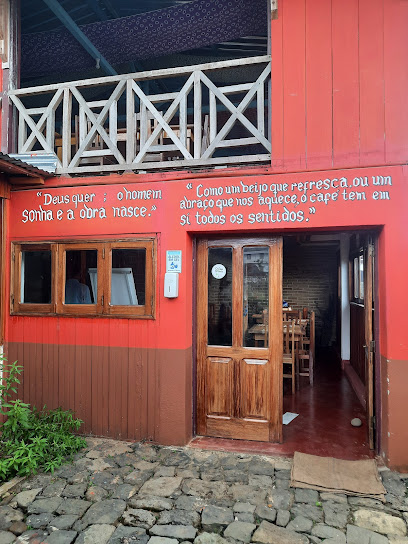
Jardim Botânico do Bom Sucesso
Explore the lush landscapes of Jardim Botânico do Bom Sucesso in Milagrosa, a serene botanical garden perfect for nature lovers and tranquil escapes.
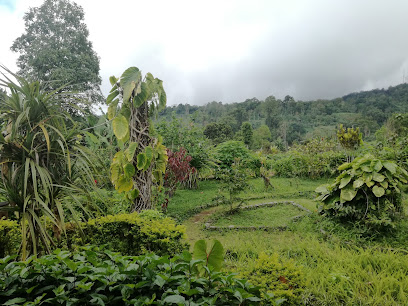
Claudio Corallo - Cacao & Caffe São Tomé e Príncipe
Explore the artisanal chocolate experience at Claudio Corallo in São Tomé, where rich flavors meet sustainable practices.
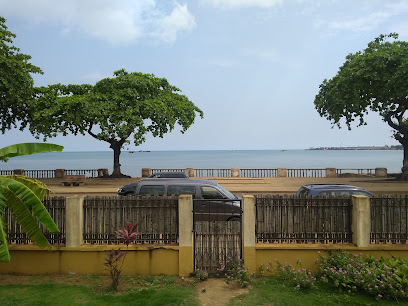
Rolas Island
Experience the breathtaking landscapes and rich culture of Rolas Island, a paradise in São Tomé and Príncipe, perfect for nature lovers and adventurers.
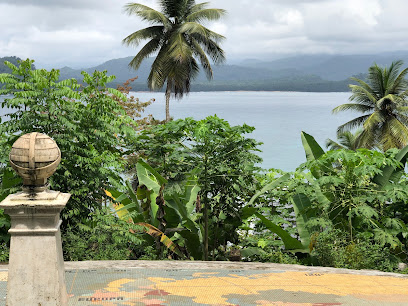
Praia das Sete Ondas
Experience the tranquility and beauty of Praia das Sete Ondas, a stunning beach destination perfect for relaxation and water activities in São Tomé.
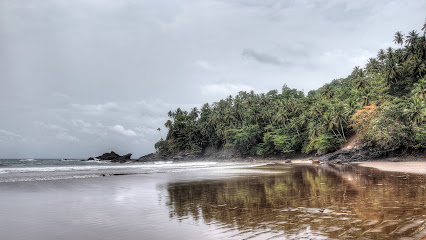
São Sebastião Museum
Explore the captivating heritage of São Tomé and Príncipe at the São Sebastião Museum, where history and culture come alive.
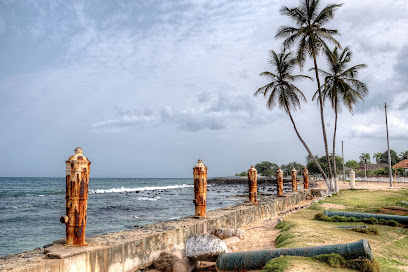
Monte Mar Restaurante São Tomé
Experience the best of São Tomé's culinary delights at Monte Mar Restaurante, where fresh seafood meets breathtaking ocean views.
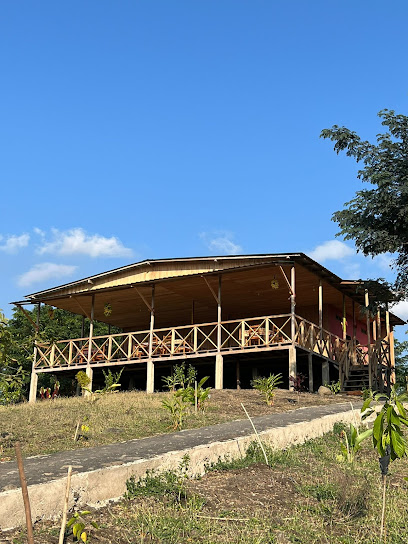
90 Graus Esplanada Bar
Discover the finest pizza in São Tomé e Príncipe at 90 Graus Esplanada Bar, where local flavors meet a cozy atmosphere for unforgettable meals.
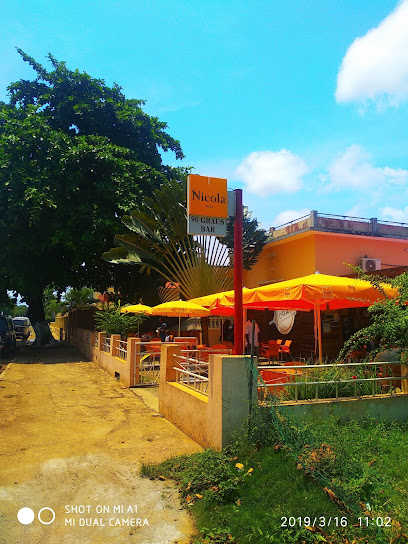
Aeroporto Internacional de São Tomé e Príncipe
Experience the vibrant culture and stunning landscapes of São Tomé and Príncipe as you arrive at Aeroporto Internacional de São Tomé e Príncipe, your gateway to adventure.
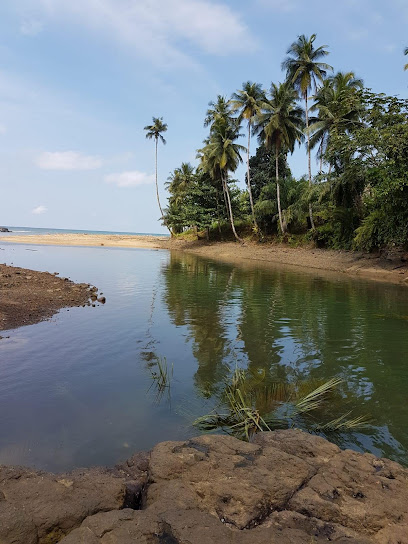
Praia Piscina
Experience the tranquility and natural beauty of Praia Piscina, a pristine beach paradise in São Tomé and Príncipe, perfect for relaxation and adventure.
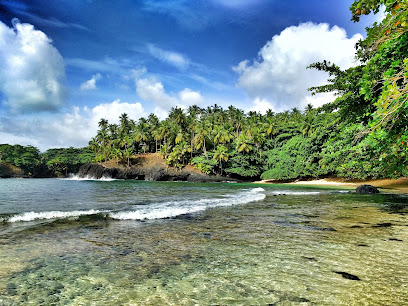
Unmissable attractions to see
Saint Nicholas Waterfall
Experience the stunning beauty of Saint Nicholas Waterfall in Monte Café, a serene destination perfect for nature lovers and adventure seekers alike.
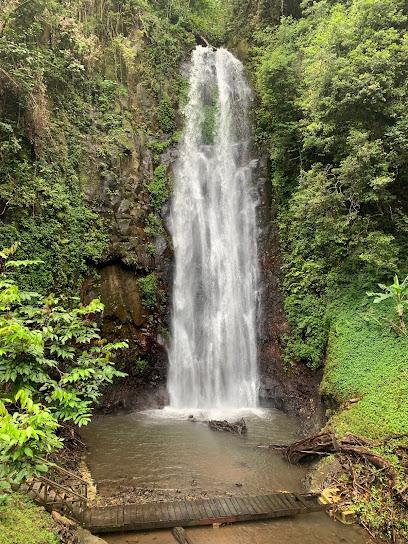
Hellmouth
Unveil the secrets of Hellmouth in Ribeira Afonso, a captivating tourist attraction surrounded by stunning nature and rich local legends.
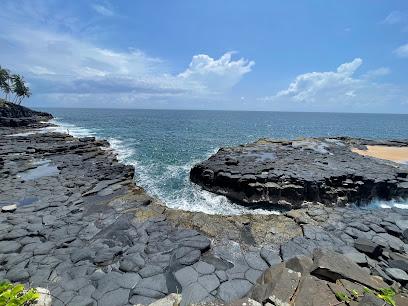
Museu Do Cafe
Explore Museu Do Cafe: A Journey Through the History and Culture of Coffee in São Tomé and Príncipe.
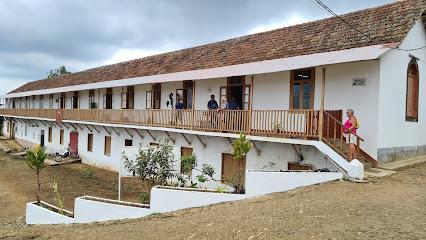
Jardim Botânico do Bom Sucesso
Immerse yourself in the lush beauty of Jardim Botânico do Bom Sucesso, a peaceful botanical garden in Milagrosa, perfect for nature lovers and photographers.
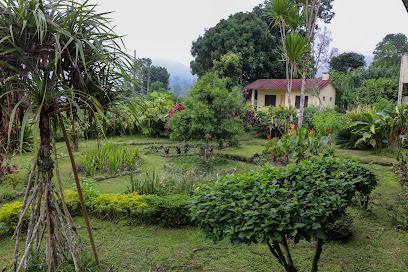
São Sebastião Museum
Discover the captivating history and culture of São Tomé and Príncipe at the São Sebastião Museum, housed in a historic fort with stunning views.
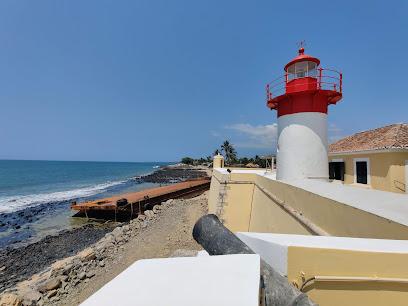
Rolas Island
Experience the untouched beauty of Rolas Island, a hidden paradise in São Tomé and Príncipe, perfect for nature lovers and adventure seekers.
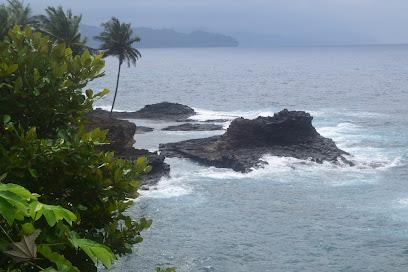
Praia das Sete Ondas
Experience the beauty of Praia das Sete Ondas, a stunning beach on São Tomé Island, perfect for relaxation, adventure, and local culture.
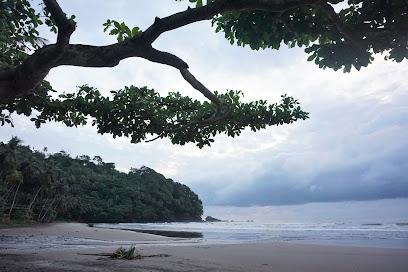
Praia Piscina
Experience the tranquil beauty of Praia Piscina, a stunning beach paradise in São Tomé and Príncipe, perfect for relaxation and adventure.
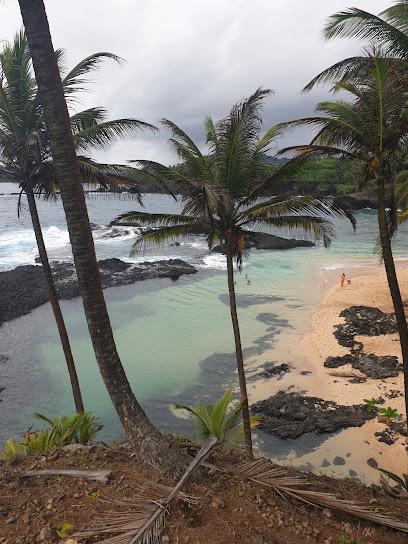
Roça Água-Izé
Explore Roça Água-Izé, an open-air museum in São Tomé showcasing the island's cocoa heritage amidst lush landscapes and historic architecture.
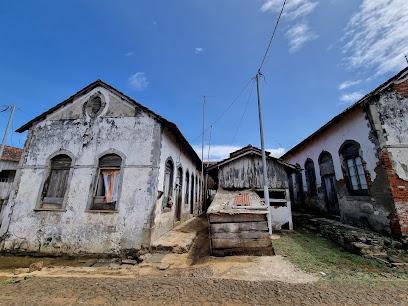
Praia Micondo
Experience the untouched beauty of Praia Micondo, a serene beach paradise in São Tomé and Príncipe, perfect for relaxation and adventure.
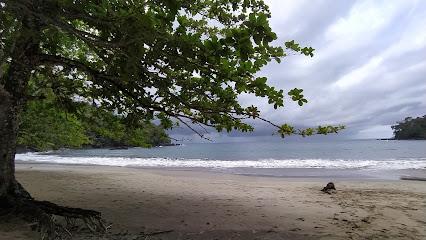
Cascata de Praia Pesqueira
Experience the breathtaking beauty of Cascata de Praia Pesqueira, a serene waterfall surrounded by lush nature on São Tomé island.
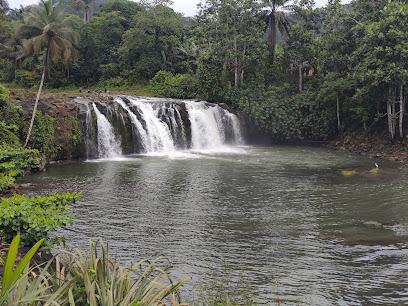
Praia Jale
Experience the tranquil beauty of Praia Jale, a pristine beach in São Tomé offering relaxation, adventure, and breathtaking ocean views.
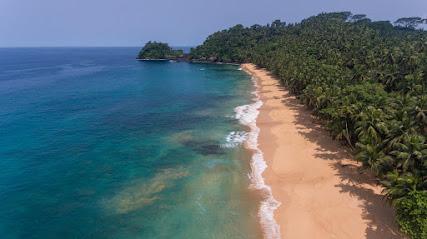
Praia Grande
Experience the natural beauty and tranquility of Praia Grande, a premier beach destination in São Tomé, perfect for relaxation and adventure.
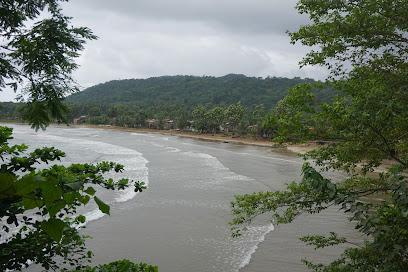
Essential places to dine
Papa-Figo
Experience authentic São Toméan cuisine at Papa-Figo - where every meal is a celebration of local flavors and hospitality.
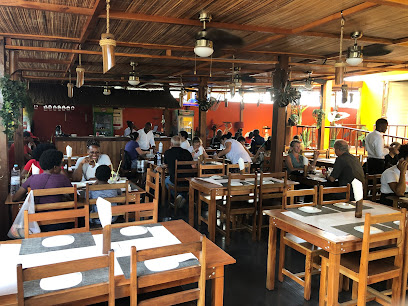
Casa Museu Almada Negreiros
Experience culinary artistry at Casa Museu Almada Negreiros - where exquisite flavors meet rich cultural heritage in Sao Tome.
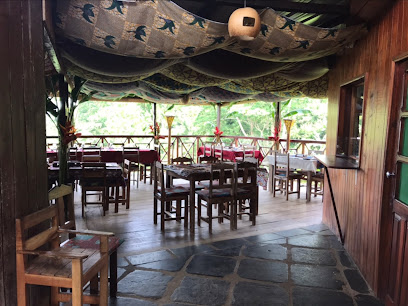
O Pirata
Experience the vibrant flavors of São Tomé at O Pirata, where fresh seafood meets warm hospitality in a charming setting.
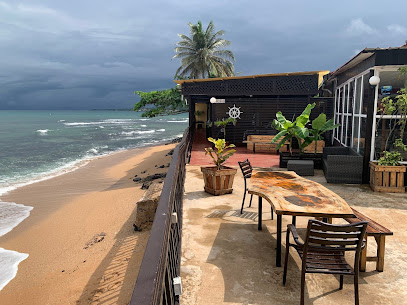
Dona Teté
Discover authentic Creole flavors at Dona Teté, where every dish celebrates the rich culinary heritage of São Tomé and Príncipe.
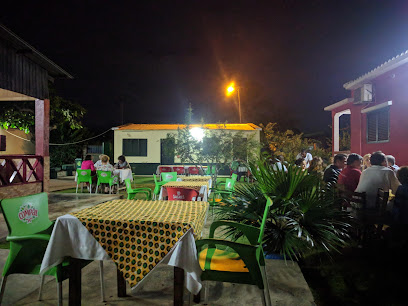
Petisqueira Santola
Discover authentic local cuisine at Petisqueira Santola in Neves – where every dish tells a story!
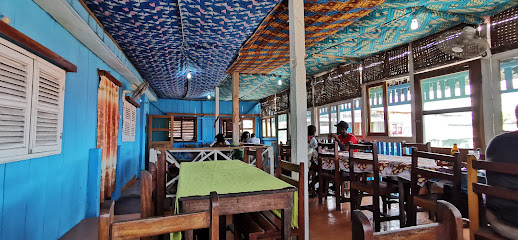
Miónga
Discover authentic local cuisine at Miónga in São João dos Angolares - where every dish tells a story of culture and tradition.
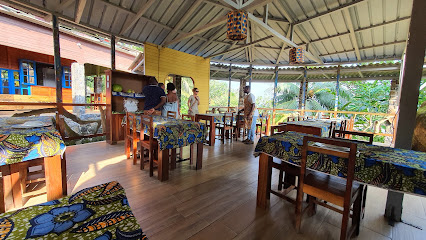
Monte Mar Restaurante São Tomé
Experience exquisite seafood and breathtaking ocean views at Monte Mar Restaurante in São Tomé.
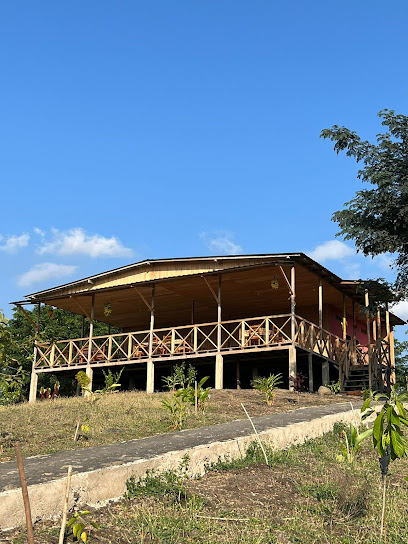
90 Graus Esplanada Bar
Discover authentic pizza flavors at 90 Graus Esplanada Bar in São Tomé - where every bite tells a story!
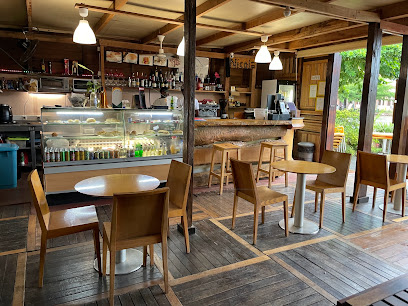
Xico's Café
Discover the flavors of São Tomé at Xico's Café - where every bite tells a story.
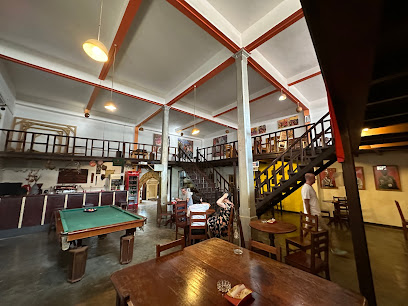
Filomar
Discover authentic Creole cuisine at Filomar in São Tomé – where local flavors meet warm hospitality for an unforgettable dining experience.
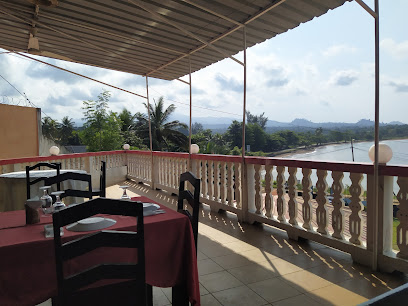
CARAMBOLA
Discover Carambola: A culinary haven in São Tomé offering exquisite local dishes and international flavors amidst an inviting ambiance.
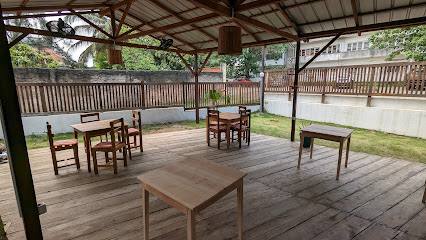
Xquizeat
Discover authentic São Toméan cuisine at Xquizeat - where local flavors meet vibrant dining experiences.
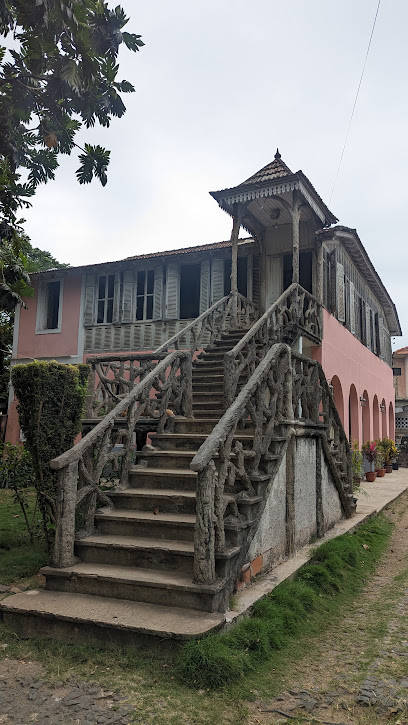
Onda Azul
Experience authentic São Toméan cuisine at Onda Azul, where fresh seafood meets vibrant culture in a charming atmosphere.
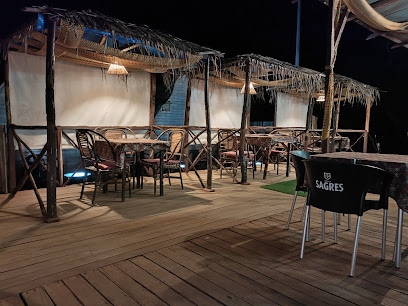
B24 Restaurant
Discover the rich flavors of São Tomé at B24 Restaurant – where local ingredients meet international flair in a welcoming atmosphere.
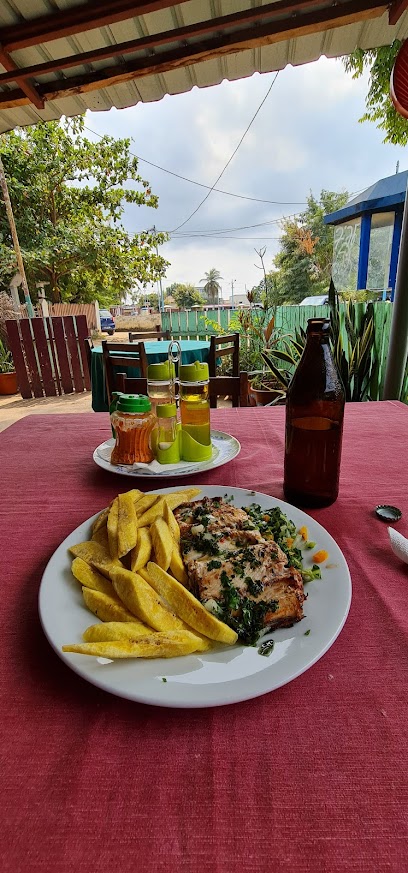
Tia Nanda
Discover authentic local cuisine at Tia Nanda in São Tomé – where flavor meets culture in every dish.
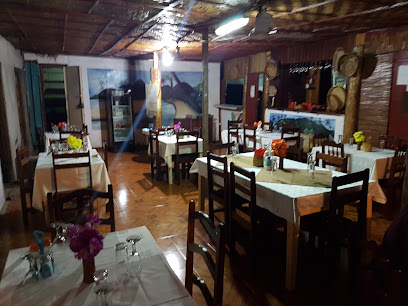
Markets, malls and hidden boutiques
Kuá Tela
Explore Kuá Tela: A vibrant store in São Tomé showcasing local craftsmanship and authentic souvenirs for every traveler.
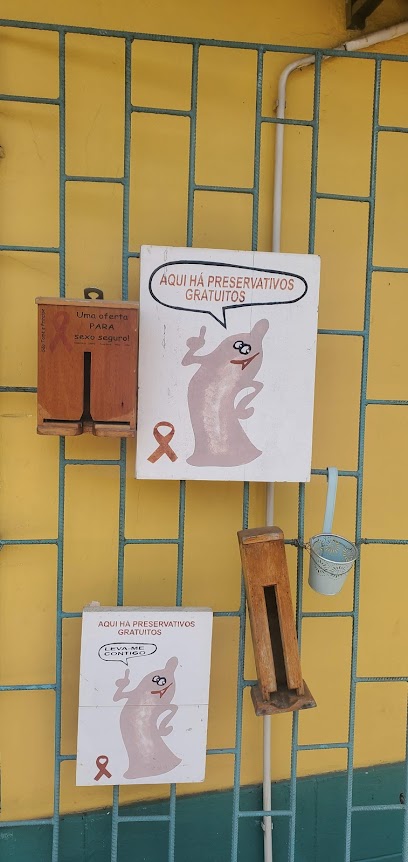
Loja do Cleyton
Explore Loja do Cleyton in Porto Alegre for unique gifts and authentic Brazilian crafts that celebrate local culture and artistry.
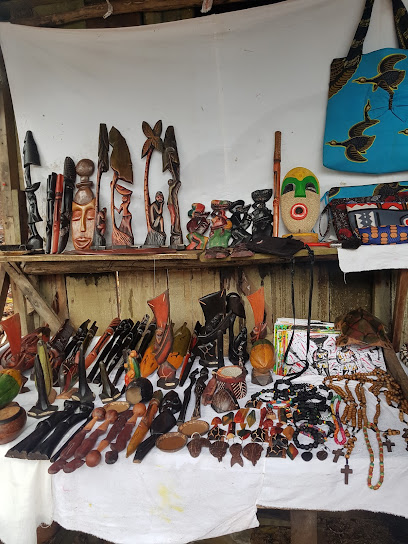
Ponto do sul
Discover unique souvenirs and local crafts at Ponto do Sul, the premier gift shop in São Tomé, celebrating the island's rich culture.
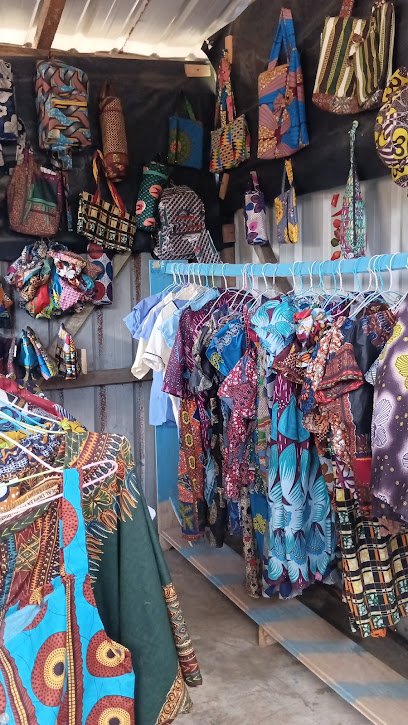
IMPANTA
Explore the vibrant world of home goods at IMPANTA, where local craftsmanship meets unique design in the heart of São Tomé.
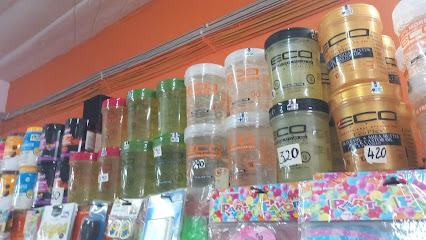
Great World Yeng Cheng
Discover the vibrant flavors of China at Great World Yeng Cheng, a premier Chinese supermarket in São Tomé offering a delicious cultural experience.
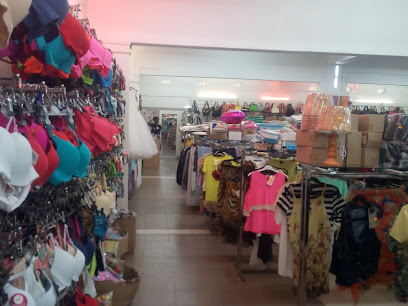
CYBER Computer
Discover Cyber Computer in São Tomé: Your ultimate shopping destination for local and international treasures, blending modern retail with cultural experiences.
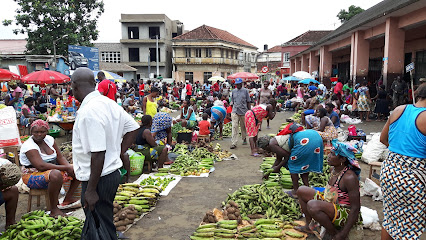
Liga de arte escultura TIVO
Explore Liga de Arte Escultura TIVO, a gift shop in São João dos Angolares, offering unique handmade souvenirs and local art treasures.
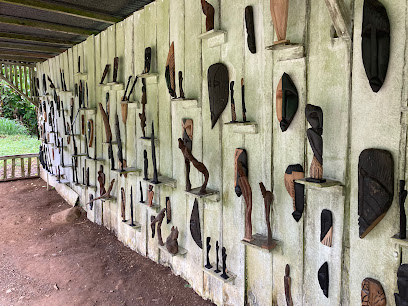
AUTENTIKA
Explore AUTENTIKA in São Tomé, a charming store filled with local crafts, unique souvenirs, and a taste of island culture.
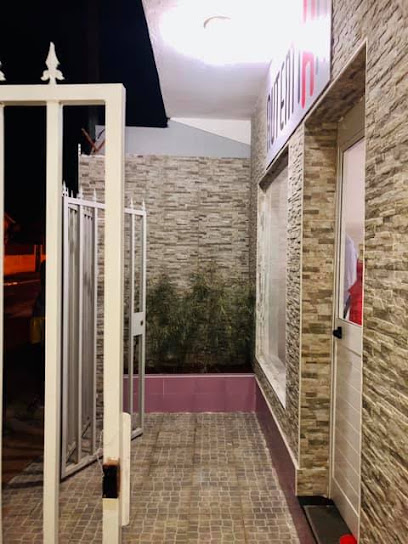
Jorge Vacas
Discover stylish clothing and unique accessories at Jorge Vacas, a cultural gem in São Tomé's vibrant fashion scene.
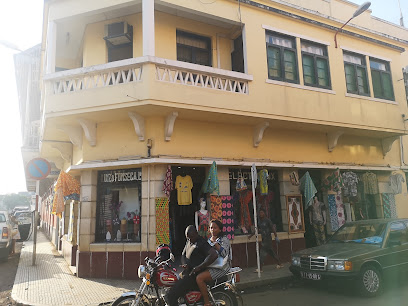
Mama África
Explore the vibrant world of African craftsmanship at Mama África, your go-to destination for unique home goods and cultural treasures in São Tomé.
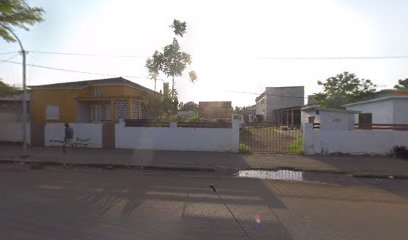
IMPANTAXI
Explore Impantaxi in São Tomé, a unique home goods store offering local craftsmanship and vibrant designs that embody the island's rich culture.
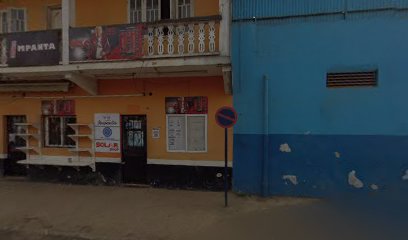
Dona Berta
Explore Dona Berta in São Tomé for a unique selection of local clothing that embodies the island's vibrant culture and style.
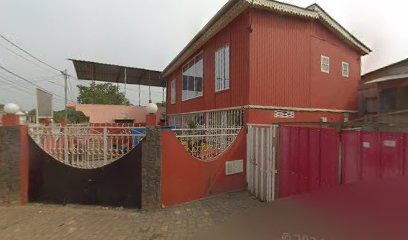
Ayala moda & casa
Explore Ayala Moda & Casa in São Tomé for a unique blend of local and international fashion, ideal for every style-conscious traveler.
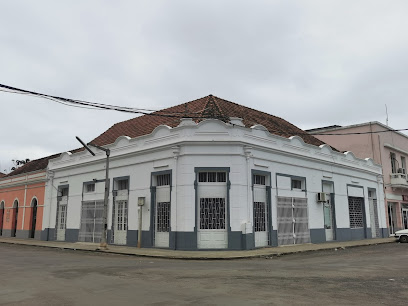
Residencial mahanha Júnior
Discover the lively Residencial Mahanha Júnior Shopping Mall in ES10, where local culture meets diverse shopping and dining experiences.
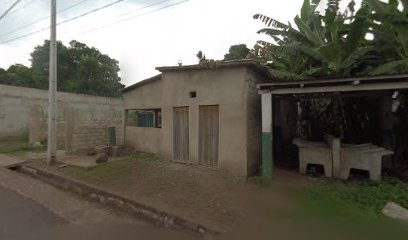
Boutique Otília
Explore Boutique Otília in Neves for unique local crafts and authentic souvenirs that embody the spirit of the region.
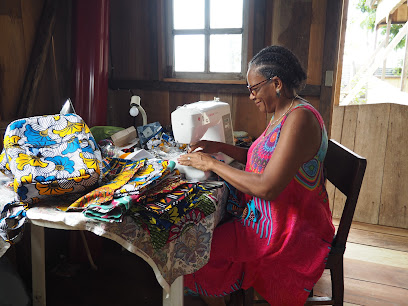
Essential bars & hidden hideouts
Casa Museu Almada Negreiros
Discover the artistic essence of Sao Tome at Casa Museu Almada Negreiros, where culinary delight meets cultural heritage.
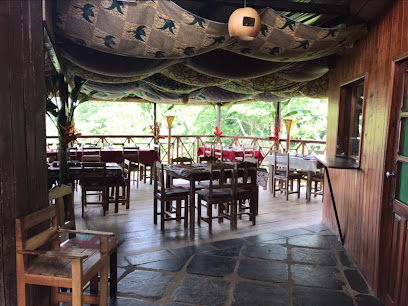
Pico Mocambo
Experience the vibrant nightlife at Pico Mocambo, a must-visit bar in São Tomé, offering local drinks and a lively atmosphere.
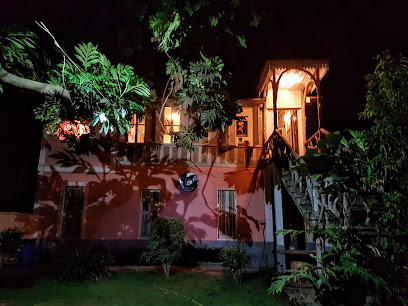
Xico's Café
Experience the vibrant culinary scene at Xico's Café, where local flavors and a cozy atmosphere await in the heart of São Tomé.
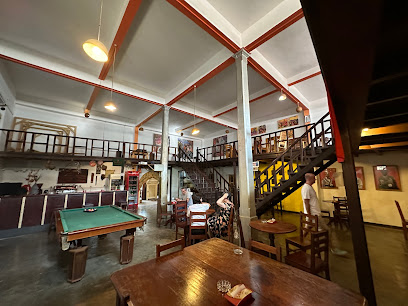
Restaurante Bar| ZIMA
Savor the tastes of São Tomé at Restaurante Bar| ZIMA - a vibrant restaurant, café, and cocktail bar with a lively atmosphere.
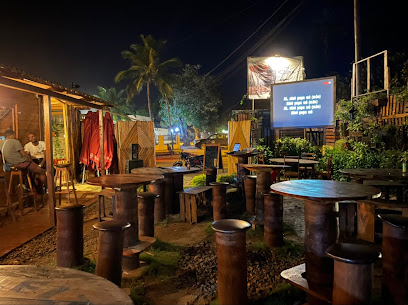
BBC/Abaya da Bôo
Discover the vibrant nightlife of BBC/Abaya da Bôo, a lively bar in São Tomé where local culture and refreshing drinks come together in a welcoming atmosphere.
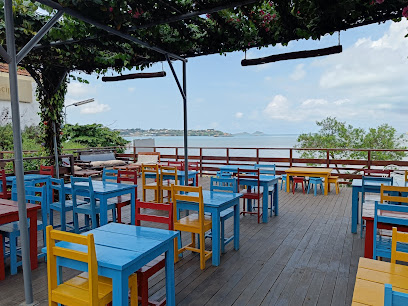
Discoteca Beach Club
Discover the lively nightlife of São Tomé at Discoteca Beach Club—a vibrant disco club with stunning beach views and an electrifying atmosphere.
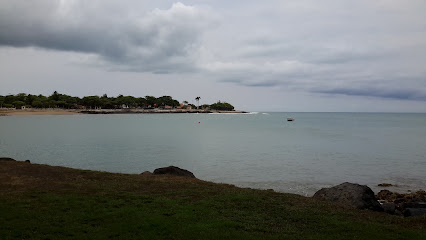
Fundador
Experience the vibrant atmosphere of Fundador Bar in São Tomé, where local flavors, refreshing drinks, and friendly vibes await every visitor.
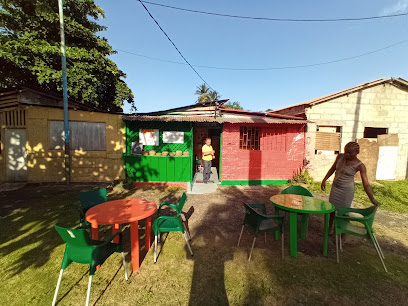
Caipirinha Tropical
Experience the vibrant nightlife of São Tomé at Caipirinha Tropical, where expertly crafted cocktails and lively music create unforgettable moments.
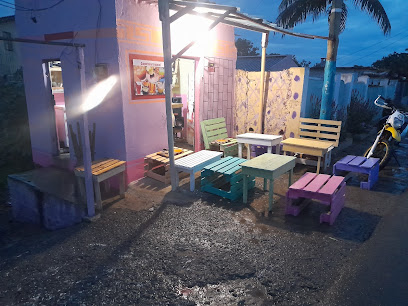
Bar Equador
Discover the taste of the equator at Bar Equador, Porto Alegre's premier seafood bar, renowned for its charcoal-grilled delights and vibrant atmosphere.
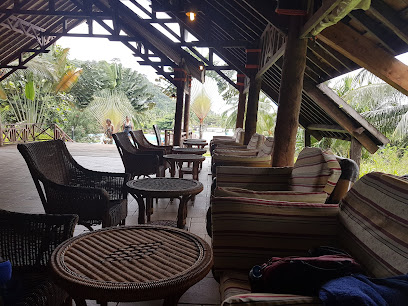
Bar cantinho dos silva Água Boia
Immerse yourself in the vibrant nightlife of São Tomé at Bar Cantinho dos Silva, where local flavors and friendly faces await.
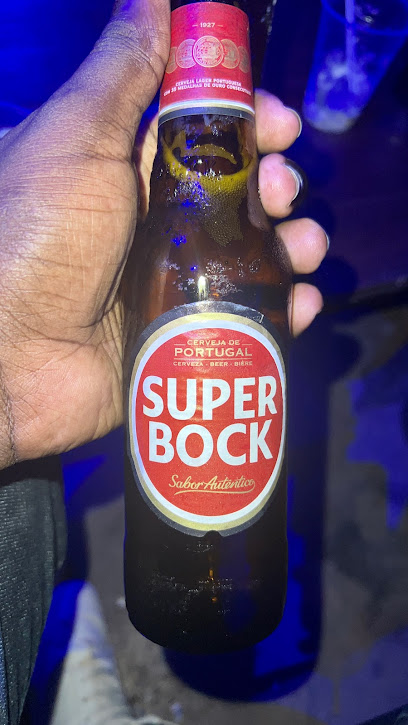
Kay Shisha
Discover the vibrant nightlife at Kay Shisha in São Tomé, where flavor meets fun and unforgettable memories are made among locals and tourists alike.
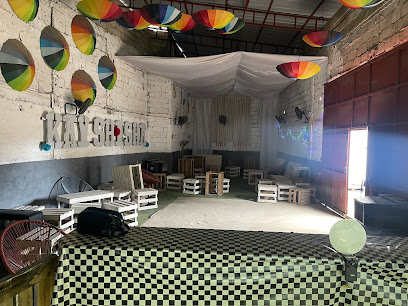
A Sombra da Coleira
Experience the vibrant local culture at A Sombra da Coleira, a unique bar in São Tomé offering refreshing drinks and a welcoming atmosphere.
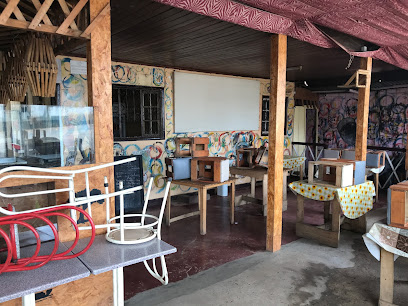
Terraço caratê
Experience the vibrant nightlife of São Tomé at Terraço Caratê, where music, culture, and stunning views come together for an unforgettable night out.
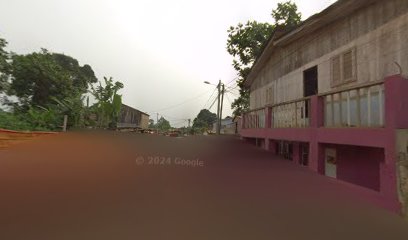
Discoteca Africana
Dive into the vibrant nightlife of São Tomé at Discoteca Africana, where music, dance, and culture come together for an unforgettable experience.
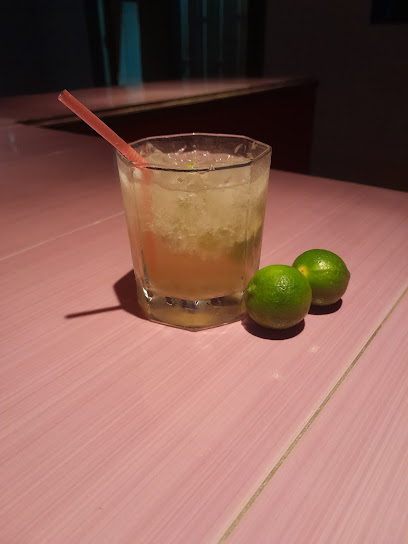
Confidencial gin lover's
Discover Confidencial gin lover's in São Tomé, where gin aficionados can indulge in artisanal spirits and enjoy a cozy atmosphere.
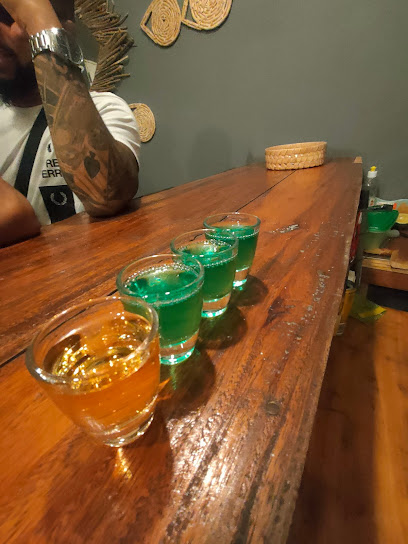
Local Phrases
-
- HelloOlá
[oh-lah] - GoodbyeAdeus
[ah-deh-oos] - YesSim
[seem] - NoNão
[now] - Please/You're welcomePor favor/De nada
[por fah-vohr/deh nah-dah] - Thank youObrigado/a
[oh-bree-gah-doh/ah] - Excuse me/SorryCom licença/Desculpe
[kohm lee-sehn-sah/deh-skool-peh] - How are you?Como está?
[koh-moh ehs-tah] - Fine. And you?Bem. E você?
[behn/eh voh-seh] - Do you speak English?Fala inglês?
[fah-lah een-glehsh] - I don't understandNão entendo
[now ehn-tehn-doh]
- HelloOlá
-
- I'd like to see the menu, pleaseGostaria de ver o menu, por favor
[goh-stah-ree-ah deh vehr ooh meh-noo/por fah-vohr] - I don't eat meatNão como carne
[now koh-moh kahr-neh] - Cheers!Saúde!
[sow-deh] - I would like to pay, pleaseGostaria de pagar, por favor
[goh-stah-ree-ah deh pah-gahr/por fah-vohr]
- I'd like to see the menu, pleaseGostaria de ver o menu, por favor
-
- Help!Ajuda!
[ah-joo-dah] - Go away!Vai embora!
[vah-ee ehm-boh-rah] - Call the Police!Chame a Polícia!
[shah-meh ah poh-lee-see-ah] - Call a doctor!Chame um médico!
[shah-meh oom meh-dee-koh] - I'm lostEstou perdido/a
[ehs-toh pehr-dee-doh/ah] - I'm illEstou doente
[ehs-toh doo-ehn-teh]
- Help!Ajuda!
-
- I'd like to buy...Gostaria de comprar...
[goh-stah-ree-ah deh kohm-prahr] - I'm just lookingEstou só a ver
[ehs-toh soh ah vehr] - How much is it?Quanto custa?
[kwahn-toh koos-tah] - That's too expensiveIsso é muito caro
[ee-soh eh mwee-toh kah-roh] - Can you lower the price?Pode baixar o preço?
[poh-deh bahy-shahr ooh preh-soh]
- I'd like to buy...Gostaria de comprar...
-
- What time is it?Que horas são?
[keh oh-rahz sah-ooh] - It's one o'clockÉ uma hora
[eh oo-mah oh-rah] - Half past (10)Meio-dia
[meh-oh dee-ah] - MorningManhã
[mah-nyah] - AfternoonTarde
[tahr-deh] - EveningNoite
[noy-teh] - YesterdayOntem
[ohn-tehm] - TodayHoje
[oh-zheh] - TomorrowAmanhã
[ah-mah-nyah] - 1Um
[oom] - 2Dois
[doh-ees] - 3Três
[trehs] - 4Quatro
[kwah-troh] - 5Cinco
[seeng-koh] - 6Seis
[seh-ees] - 7Sete
[seh-teh] - 8Oito
[oy-toh] - 9Nove
[noh-veh] - 10Dez
[dehz]
- What time is it?Que horas são?
-
- Where's a/the...?Onde fica o/a...?
[ohn-deh fee-kah ooh/ah] - What's the address?Qual é o endereço?
[kwahl eh ooh ehn-deh-reh-soh] - Can you show me (on the map)?Pode mostrar-me (no mapa)?
[poh-deh moh-strahr-meh/noh mah-pah] - When's the next (bus)?Quando é o próximo (autocarro)?
[kwahn-doh eh ooh proh-see-moh/ow-toh-kah-roo] - A ticket (to ....)Um bilhete (para ....)
[oom beel-yeh-teh/pah-rah]
- Where's a/the...?Onde fica o/a...?
History of Santa Catarina
-
Santa Catarina, located on the island of São Tomé, was established during the early colonial period when the Portuguese first arrived in the region in the late 15th century. The town became an integral part of the island's plantation economy, primarily focused on sugarcane production. The Portuguese colonists used enslaved Africans to work on the plantations, which significantly impacted the social and cultural fabric of Santa Catarina.
-
During the 16th and 17th centuries, Santa Catarina experienced a sugar boom that brought considerable wealth to the region. Sugarcane plantations thrived, and the town became one of the prominent centers for sugar production on the island. The economic prosperity attracted traders and settlers, contributing to the town's growth and development.
-
The abolition of slavery in the mid-19th century marked a significant turning point in the history of Santa Catarina. Although the process was gradual, the end of forced labor brought about social changes and shifts in the plantation economy. Former slaves and their descendants began to establish communities and participate more actively in local affairs, leading to a more diverse and integrated society.
-
In the late 19th and early 20th centuries, the focus of Santa Catarina's economy shifted from sugar to cocoa production. The fertile volcanic soil of São Tomé proved ideal for cocoa cultivation, and the town became a major exporter of this valuable commodity. The transition to cocoa brought new economic opportunities and challenges, shaping the town's development in the modern era.
-
Santa Catarina played a role in the broader independence movement of São Tomé and Príncipe. The struggle for independence from Portuguese colonial rule intensified in the mid-20th century, culminating in the country's declaration of independence on July 12, 1975. The town, like many others on the island, experienced significant political and social changes during this period, as local leaders and activists worked towards self-governance and national identity.
-
Today, Santa Catarina is a vibrant town that reflects the rich cultural heritage of São Tomé and Príncipe. It is known for its traditional music, dance, and festivals that celebrate the island's history and diversity. The town's architecture, with its blend of colonial and local styles, offers a glimpse into its past, while the bustling markets and community gatherings highlight the enduring spirit of its people.
Santa Catarina Essentials
-
Santa Catarina is located on the island of São Tomé in São Tomé and Príncipe. The main entry point is São Tomé International Airport (TMS), which receives flights from several major cities in Africa and Europe. From the airport, you can take a taxi or rent a car to reach Santa Catarina, which is approximately a 30-minute drive from the capital city, São Tomé.
-
In Santa Catarina, getting around is relatively easy. Taxis are widely available and can be hired for short trips or full-day excursions. There are also minibuses that connect Santa Catarina with other parts of the island. Renting a car is a convenient option if you plan to explore the island at your own pace. Biking is also popular and a great way to enjoy the scenic landscapes.
-
The official currency in São Tomé and Príncipe is the Dobra (STN). Credit cards are accepted in some hotels, restaurants, and larger shops, but it is advisable to carry cash, especially in smaller establishments and rural areas. ATMs are available, but it is wise to withdraw sufficient cash in the capital city before heading to Santa Catarina.
-
Santa Catarina is generally a safe destination for tourists. However, it is advisable to take standard precautions. Avoid walking alone at night in unfamiliar areas, and keep an eye on your belongings in crowded places. There are no specific high-crime areas targeting tourists, but staying vigilant and aware of your surroundings is always best.
-
In case of emergency, dial 112 for immediate assistance. The local police station and medical facilities are available in Santa Catarina. It is recommended to have travel insurance that covers medical emergencies. For minor health issues, there are pharmacies where you can purchase over-the-counter medications.
-
Fashion: Do dress modestly, especially when visiting religious sites. Avoid wearing revealing clothing. Religion: Do respect local customs and traditions. Always cover your head when entering churches. Public Transport: Do be respectful and give up your seat to elderly passengers. Don’t eat or drink on public transport. Greetings: Do greet people with a handshake. A slight bow of the head is also a sign of respect. Eating & Drinking: Do try local delicacies and accept food offerings graciously. Don’t refuse hospitality, as it is considered impolite.
-
To experience Santa Catarina like a local, visit the local markets where you can buy fresh produce and traditional São Toméan goods. Engage with locals, as they are often friendly and willing to share stories about the area’s history and culture. Don’t miss the opportunity to explore nearby coffee plantations and pristine beaches. For a unique experience, participate in a guided fishing tour with local fishermen.
Trending Landmark in Santa Catarina
-
Papa-Figo
-
Omali São Tomé
-
Saint Nicholas Waterfall
-
Equator Landmark
-
Pico Mocambo
-
Sao Tome Island
-
Jardim Botânico do Bom Sucesso
-
Claudio Corallo - Cacao & Caffe São Tomé e Príncipe
-
Rolas Island
-
Praia das Sete Ondas
-
São Sebastião Museum
-
Monte Mar Restaurante São Tomé
-
90 Graus Esplanada Bar
-
Aeroporto Internacional de São Tomé e Príncipe
-
Praia Piscina
Nearby Cities to Santa Catarina
-
Things To Do in Neves
-
Things To Do in Guadalupe
-
Things To Do in Trindade
-
Things To Do in Angolares
-
Things To Do in Ribeira Afonso
-
Things To Do in Sao Tome City
-
Things To Do in Santo Antonio
-
Things To Do in Libreville
-
Things To Do in Mbini
-
Things To Do in Luba
-
Things To Do in Lambaréné
-
Things To Do in Malabo
-
Things To Do in Kribi
-
Things To Do in Port Harcourt
-
Things To Do in Limbe







